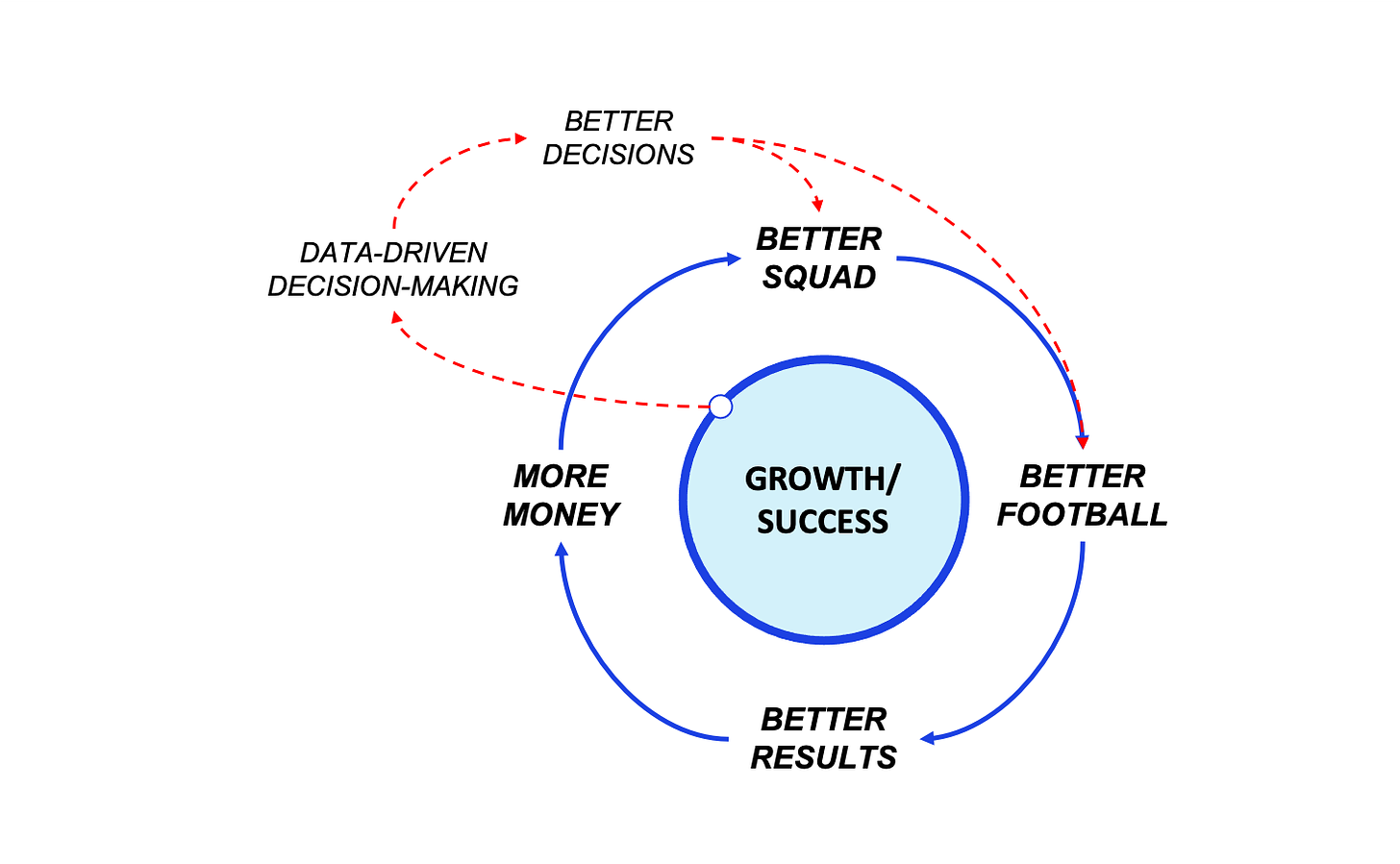Is There Something Like a Lasting First Mover Advantage in Football?
In most businesses, the advantages of being first to market are arguably not so overwhelmingly great. New or established companies will come along at any point, make something better, and customers will switch.
Google is a good example of that. When they entered the market for search engines, it was dominated by big players such as Yahoo, Lycos, or Infoseek. However, Google was able to customize its search engine to perform more effectively and efficiently. Today, Google has a market share of 92%.
There are a couple of reasons why I think that looks different in football. In its simplest way, the football system works as follows: When a club becomes successful, it increases its revenue. With increasing revenue, it can invest more and buy better players. This, in turn, increases the odds of success and so on …
How this virtuous cycle works can be seen in every European League. The big teams that dominate European football today have done it for years. Many of them had a first mover advantage as they were the most successful when the domestic leagues reached their current structures at some point in the 19th century.
With that being said, it is not impossible to creep into this dominant group of clubs – or at least to improve one’s position in the football pyramid. To achieve this, you have to separate yourself from the herd and do something different.
Take Brentford in England as an example. Brentford is not the first club to use data to improve its decision-making. But while most clubs use data in one way or the other, hardly any club has embraced it as much as the club of Matthew Benham. The Bees have an early mover advantage because they have better data and experts who execute on these insights.
This strategy, for example, allowed them to find young gems on the transfer market, turn them into stars, and sell them at the right time. Their recent promotion into the Premier League is the result of their bold decisions in the past. The club has achieved this because it was a first mover. Because it did something non-consensus that worked out perfectly.
The question with first movers is always: How long will this advantage last? How sustainable is it? I think it depends on essentially two factors:
1) The duration until other clubs have adapted (or made it better)
2) The extent to which a club has strengthened its position by then
Generally speaking, the adaption in sports is slow. But it always depends. For example, being innovative with a new tactic in football will hardly provide a sustainable edge. Other teams will adapt within a few games or at least after a season.
Data-driven decision making is a much bigger topic. It might take another 5 to 10 years until many clubs have adapted and really execute on the data.
However, the adoption might pick up speed now. As the diffusion of innovations theory by Everett M. Rogers argues: new ideas are just widely accepted once they are not considered new anymore and proven to be successful. Brentford’s success is another milestone on this road. We just have to look at Baseball to see how this eventually ends.
The extent to which a first mover advantage is strengthened depends on the consistency of performance. Take Brentford again. If Brentford stays up in the EPL for the next, say, three years, the club will benefit long-term from being a first mover. The longer Brentford stays in the league, the more money they earn and the more time they have to build a squad on Premier League level. To put it another way, it depends on how long they can keep their flywheel in motion and benefit from their competitive advantage.

This flywheel is not infinite, and it has obvious limits. But you want to keep it in motion for as long as possible.
To cut a long story short: There can be very significant long-term advantages (also disadvantages) of being a first mover in football. But that means that you have to be willing to do something different than the average club. As Howard Marks describes it: You have to be non-consensus and right. In the second step, it’s about strengthening and maintaining the position. Without that, it was just a nice on-time success.
On a side note: The sustainability aspect is something that distinguishes European football from American Sports. The Houston Rockets have been the pioneers of the NBA analytics movement. They had an edge and it brought them success. But: in American Sports, it is (almost) impossible to create a sustainable edge. Other than in European football, you can’t spend more money and you can’t sign all the best players in the world.
This system ensures a competitive balance and allows other franchises to catch up. You can’t really build lock-in effects as you can in football by earning and spending more. It also forces franchises not to be complacent. As Daryl Morey says: “You always have to keep innovating.”


